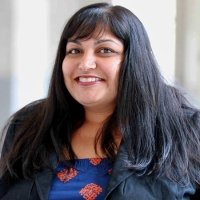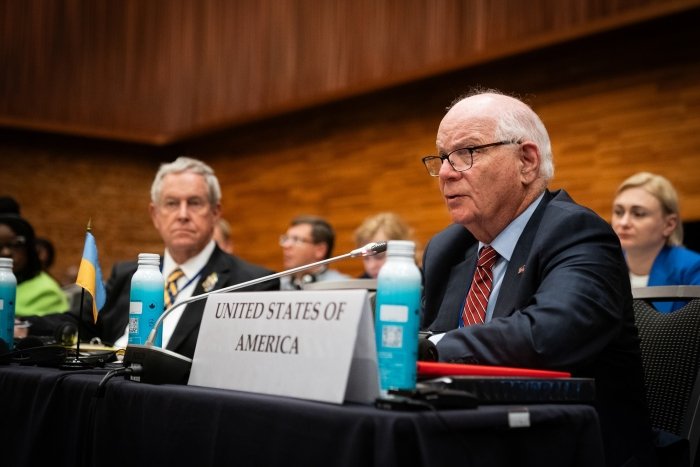Tailored to Fit: Programming for the Sexual and Reproductive Health Needs and Rights of Young Women
The first time Almaz, a teenager living in rural southern Ethiopia, went to the crowded health care clinic in her village to get contraception, she was told they only helped older women with children. The second time, she waited hours only to find out that her preferred method of contraception was out of stock and she would have to return another day.
Almaz is just one example of the many adolescent girls and young women around the world with unmet needs for sexual and reproductive health care, said Dr. Mengistu Asnake, Pathfinder International’s Ethiopia country representative, at the Wilson Center on September 17. Sixteen million girls between the ages of 15 and 19, and two million girls under 15 give birth every year. The majority of these girls are married, according to Monique Widyono, a gender advisor for USAID.
“Unprotected sexual activity contributes to a number of social risks and negative health outcomes for many young women and adolescent girls, including issues such as early pregnancy, STIs [sexually transmitted infections], HIV infection, obstetric fistula, unsafe abortion, nutrition outcomes, and gender-based violence,” said Widyono.
Widyono and Asnake were joined by Kerry MacQuarrie, a senior research associate at MEASURE DHS and ICF International, and Tanou Diallo, Pathfinder International’s West Africa regional representative, to discuss the challenges of meeting young women’s needs.
New Research Shows Youth Demand
According to preliminary results from a forthcoming MEASURE DHS report by MacQuarrie, total demand among young married women (ages 15 to 24) for family planning is highest in Latin America and the Caribbean, but African women have the highest unmet need for family planning (the ratio of number of married women of reproductive age who want to delay or cease childbearing but are not using contraception to the number of married women of reproductive age).
Of 61 countries surveyed, Haiti and Ghana have the highest unmet need for family planning, while Western and Central African countries have the highest unmet need regionally. Most married women are more concerned with adequate spacing between births rather than limiting total births, while “unmarried women do not want to get pregnant by and large,” said MacQuarrie.
In Ethiopia, Progress, But Can Everyone Be Reached?
“Women who start having children very young often do not complete secondary school, limiting their future employment possibilities and other life choices,” Mengistu said. “Additionally, starting child-bearing young often results in larger families and reduced economic circumstances.”
With funds from USAID, Pathfinder’s Integrated Family Health Program works in six regions of Ethiopia, reaching around 35 million people. By partnering with local NGOs, Mengistu said they have established youth-friendly services in 160 health clinics and trained peer educators to reach the most vulnerable young people. “In most of the peer education training we are trying our best to include both males and females to address the gender related issues in terms of addressing the youth’s problems,” he said.
Mengistu’s research on Pathfinder’s work, published in the International Journal of Gynecology and Obstetrics, found “clients served by health extension workers in rural areas were three to four years younger” than in a national survey from 2011. This, he said, is an encouraging sign of the “expansion of access to long-acting family planning services at the community level.” Contraceptive use among young women, ages 20 to 24, rose from less than 5 percent in 2000 to more than 30 percent in 2011, while unmet need for family planning in the same age group dropped from almost 40 percent to around 23 percent.
But, as Almaz’s story shows, providers’ attitudes can inhibit young women from waiting in or traveling to health clinics (83 percent of Ethiopians live in rural and isolated areas). A wider scale-up to reach more young people – Pathfinder’s work covers about a third the country’s population – will likely require program ownership and budget allocation by the public sector, Mengistu said.
Lessons From India for West Africa
Across the continent, Pathfinder’s West Africa representative Diallo said married adolescents and first-time parents often similarly “fall through the cracks” of NGO and government programming. “For most communities, once adolescents get married they are no longer considered young girls or adolescents…most of our youth-friendly services like peer education and school-based programs do not reach them,” he explained.
Currently, Diallo is working on adapting and implementing the PRACHAR project, originally launched in India, to Guinea, Niger, and Burkina Faso. The project aims to delay first births and increase spacing between subsequent births by targeting three demographic groups to generate normative change: unmarried boys and girls; married young people and first-time parents; and key decision-makers, such as mothers-in-law and community leaders. The PRACHAR project “engaged both the male and female partners,” said Diallo, and they plan to do the same in West Africa.
Diallo explained that one challenge he will face is garnering support from the public sector. The health service sector in India is stronger and more committed to sexual and reproductive health care services than those of West Africa, he said. Also, some young wives in Guinea, Niger, and Burkina Faso are in plural marriages, which will require the project to explore new methods to engage co-wives.
On the other hand, Diallo said there is an opportunity to build on existing community social structures, such as Seres, small women’s savings groups that are common throughout the region. Strengthening these could help empower women in a way that is familiar to them. He also said Pathfinder is engaging existing organizations focused on sexual and reproductive health, such as the International Planned Parenthood Federation affiliates in Guinea and Niger, as a way to strengthen local institutions.
Tailoring Programs for Diverse Challenges
According to the UN Development Program’s latest MDG report on Africa, the majority of countries on the continent are not on track to meet Goal 4 (reduce child mortality) or Goal 5 (reduce maternal mortality and achieve universal access to reproductive health) by 2015.
As the panelists made clear, the challenges to meeting sexual and reproductive health care needs in Ethiopia vary from those in West Africa, which again vary from those in India. Some women live in remote areas away from health clinics, while others may feel intense societal pressure to have children shortly after marriage. Some women marry young, and still others are one of many wives. It’s clear unmet need for sexual and reproductive health care is the result of a number of service gaps, but more flexible interventions like Pathfinder’s holistic and community-level approach could help minimize the deaths of young mothers and improve reproductive health on a global scale.
Event Resources:
Drafted by Laura Henson, edited by Schuyler Null.
Speakers

Hosted By

Environmental Change and Security Program
The Environmental Change and Security Program (ECSP) explores the connections between environmental change, health, and population dynamics and their links to conflict, human insecurity, and foreign policy. Read more


Maternal Health Initiative
Despite global attention and calls to action, women continue to die while giving birth. The Maternal Health Initiative (MHI) leads the Wilson Center’s work on maternal health, global health equity, and gender equality. MHI works to connect issues critical to global health and women’s empowerment to foreign policy and US leadership, with a focus on improving the lives of women, adolescents, and children around the world. Through collaborations with policymakers, academia, donors, and practitioners, MHI produces cutting-edge research, fosters cross-sectoral engagement, increases awareness of key issues, and informs US leadership on solutions for ending maternal and newborn deaths and addressing gender-based global health issues. Read more


Global Risk and Resilience Program
The Global Risk and Resilience Program (GRRP) seeks to support the development of inclusive, resilient networks in local communities facing global change. By providing a platform for sharing lessons, mapping knowledge, and linking people and ideas, GRRP and its affiliated programs empower policymakers, practitioners, and community members to participate in the global dialogue on sustainability and resilience. Empowered communities are better able to develop flexible, diverse, and equitable networks of resilience that can improve their health, preserve their natural resources, and build peace between people in a changing world. Read more


Africa Program
The Africa Program works to address the most critical issues facing Africa and US-Africa relations, build mutually beneficial US-Africa relations, and enhance knowledge and understanding about Africa in the United States. The Program achieves its mission through in-depth research and analyses, public discussion, working groups, and briefings that bring together policymakers, practitioners, and subject matter experts to analyze and offer practical options for tackling key challenges in Africa and in US-Africa relations. Read more


